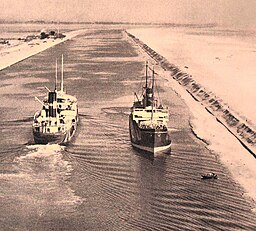A throwback to the 1956 ‘Suez crisis’, when Britain, France and Israel attacked Egypt, which happened at the same time as the USSR invaded Hungary to suppress the democratic movement there.
Lady Violet Bonham Carter, an influential member of Britain’s Liberal Party, wrote in a letter to The Times:
I am one of the millions who watching the martyrdom of Hungary and listening yesterday to the transmission of her agonizing appeals of help (immediately followed by our ‘successful bombings’ of Egyptian ‘targets’) who have felt a humiliation, shame and anger which are beyond expression…. We cannot order Soviet Russia to obey the edict of the United Nations which we ourselves have defied, nor to withdraw her tanks and guns from Hungary while we are bombing and invading Egypt. Today we are standing in the dock with Russia…. Never in my lifetime has our name stood so low in the eyes of the world. Never have we stood so ingloriously alone.
AN Wilson, Our times in the Age of Elizabeth II, Hutchinson, 2008, p. 66.
Photo: Suez Crisis, (1956), an international crisis in the Middle East, precipitated on July 26, 1956. (CC BY-SA 4.0 Deed)

